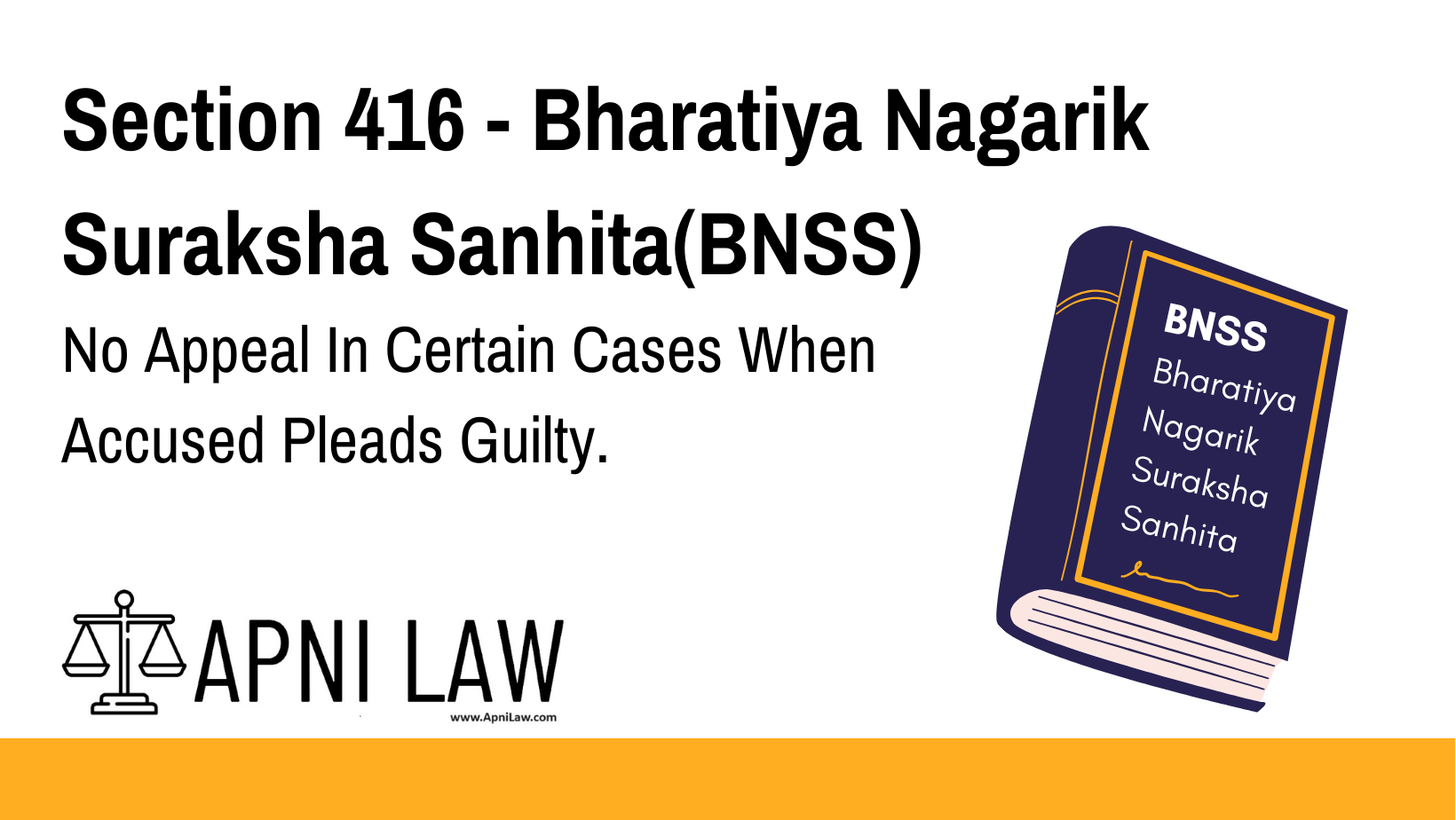Code
Section 416 BNSS
Notwithstanding anything in Section 415 BNSS, where an accused person has pleaded guilty and has been convicted on such plea, there shall be no appeal,
(i) If the conviction is by a High Court; or
(ii) If the conviction is by a Court of Session or a Magistrate of the First or Second Class, except as to the extent or legality of the sentence.
Explanation of Section 416 BNSS
This section restricts the right to appeal when the accused has voluntarily pleaded guilty. The reasoning behind this restriction is that once an individual admits guilt, there is little basis for challenging the conviction itself. However, exceptions are made to ensure fairness in sentencing:
- No Appeal Against Conviction if Plea is Voluntary
- If a person pleads guilty and is convicted, they cannot appeal against the conviction.
- Exception for Appeals Against Sentence
- While the conviction itself cannot be challenged, the accused can appeal if there is a dispute regarding:
- Severity of the sentence (whether it is too harsh or disproportionate).
- Legality of the sentence (whether the sentence imposed violates legal provisions).
- While the conviction itself cannot be challenged, the accused can appeal if there is a dispute regarding:
Illustrations
Example 1: No Appeal Against Conviction
Ravi pleads guilty to theft (Section 303 BNS) before a Magistrate of the First Class and is convicted. Since he admitted guilt, he cannot appeal against his conviction under Section 416 BNSS.
Example 2: Appeal Against Sentence
Arun pleads guilty to assault (Section 324 BNS) before a Sessions Court. He is sentenced to 10 years of imprisonment, which he believes is excessive.
- While he cannot appeal the conviction, he can appeal against the sentence, arguing that the punishment is too harsh.
Example 3: No Appeal Against High Court Conviction
If a High Court convicts a person on their guilty plea, they have no right to appeal—even regarding the sentence.
Common Questions and Answers
1. Can a person appeal if they plead guilty?
No, an accused cannot appeal against the conviction if they pleaded guilty. However, they can appeal against the extent or legality of the sentence (except if convicted by a High Court).
2. What if a Magistrate imposes an unfairly high sentence after a guilty plea?
The accused can appeal against the sentence but not the conviction itself.
3. Can a guilty plea be withdrawn after conviction?
Once the court accepts a voluntary guilty plea and convicts the person, the plea cannot be withdrawn. However, if the plea was made under coercion or misunderstanding, the accused may seek legal remedies.
4. Why does Section 416 restrict appeals?
This provision ensures that individuals who voluntarily admit guilt cannot later challenge their conviction, which helps in expediting judicial proceedings. However, the law allows appeals on sentencing to prevent unfair punishments.
Conclusion
Section 416 BNSS limits appeals for those convicted on their own guilty plea to ensure judicial efficiency. However, it maintains fairness by allowing appeals against excessive or illegal sentences (except when convicted by a High Court). This provision strikes a balance between judicial expediency and protecting the accused from unjust punishment.
For more legal insights, visit ApniLaw! 🚀








